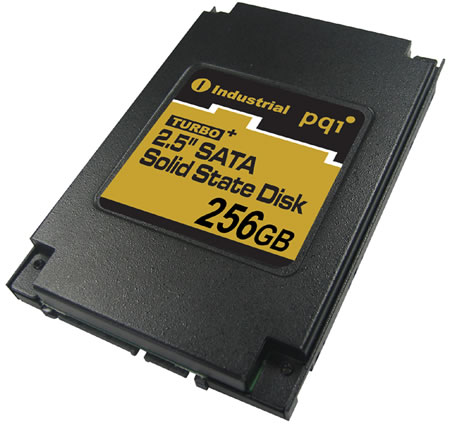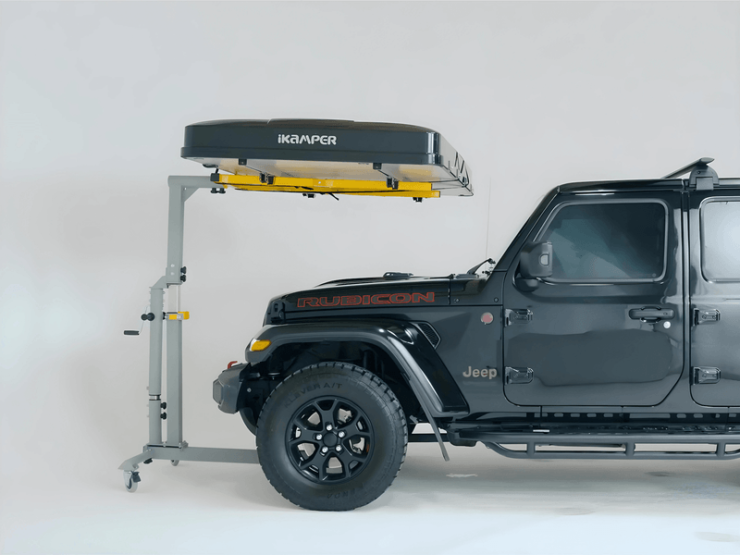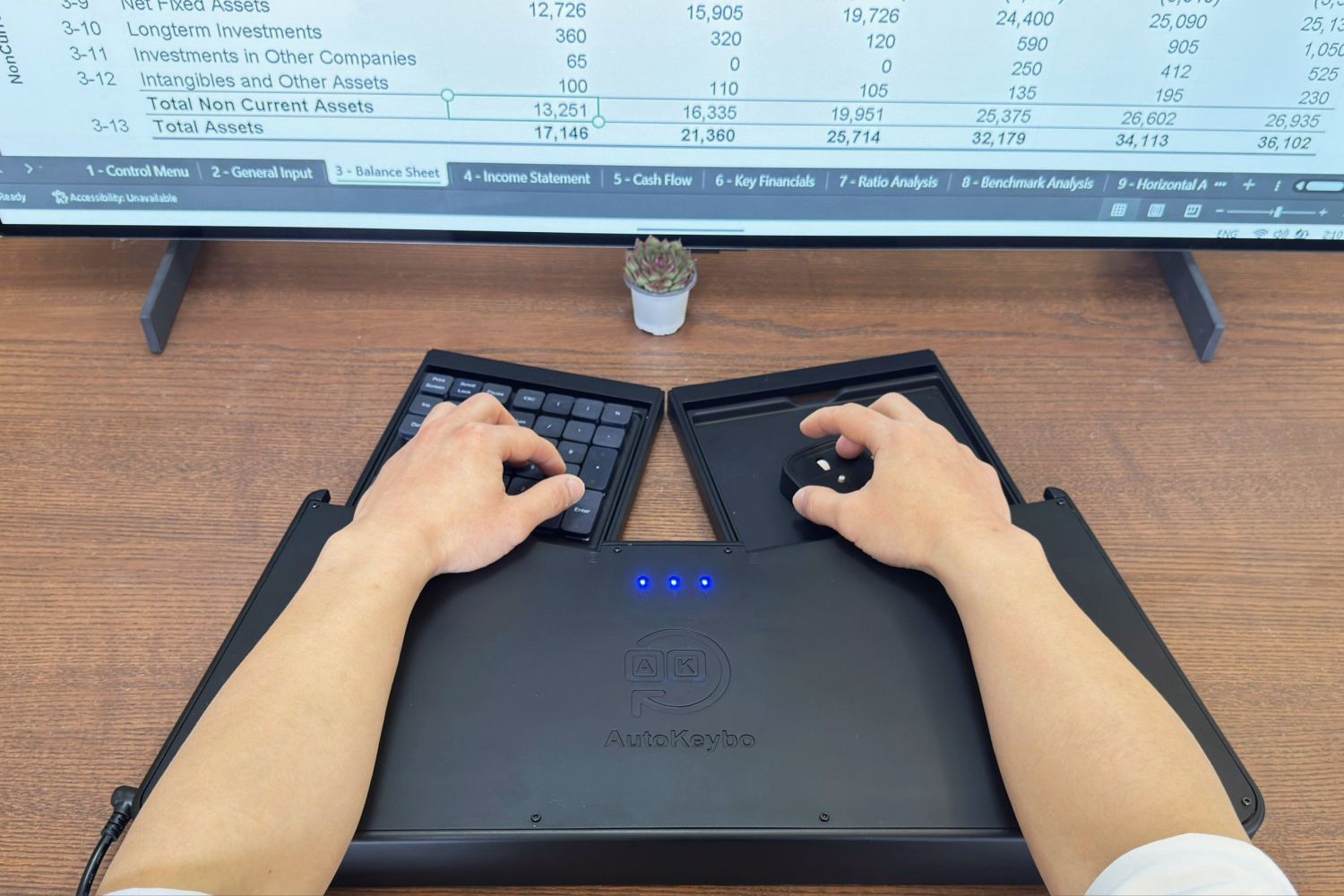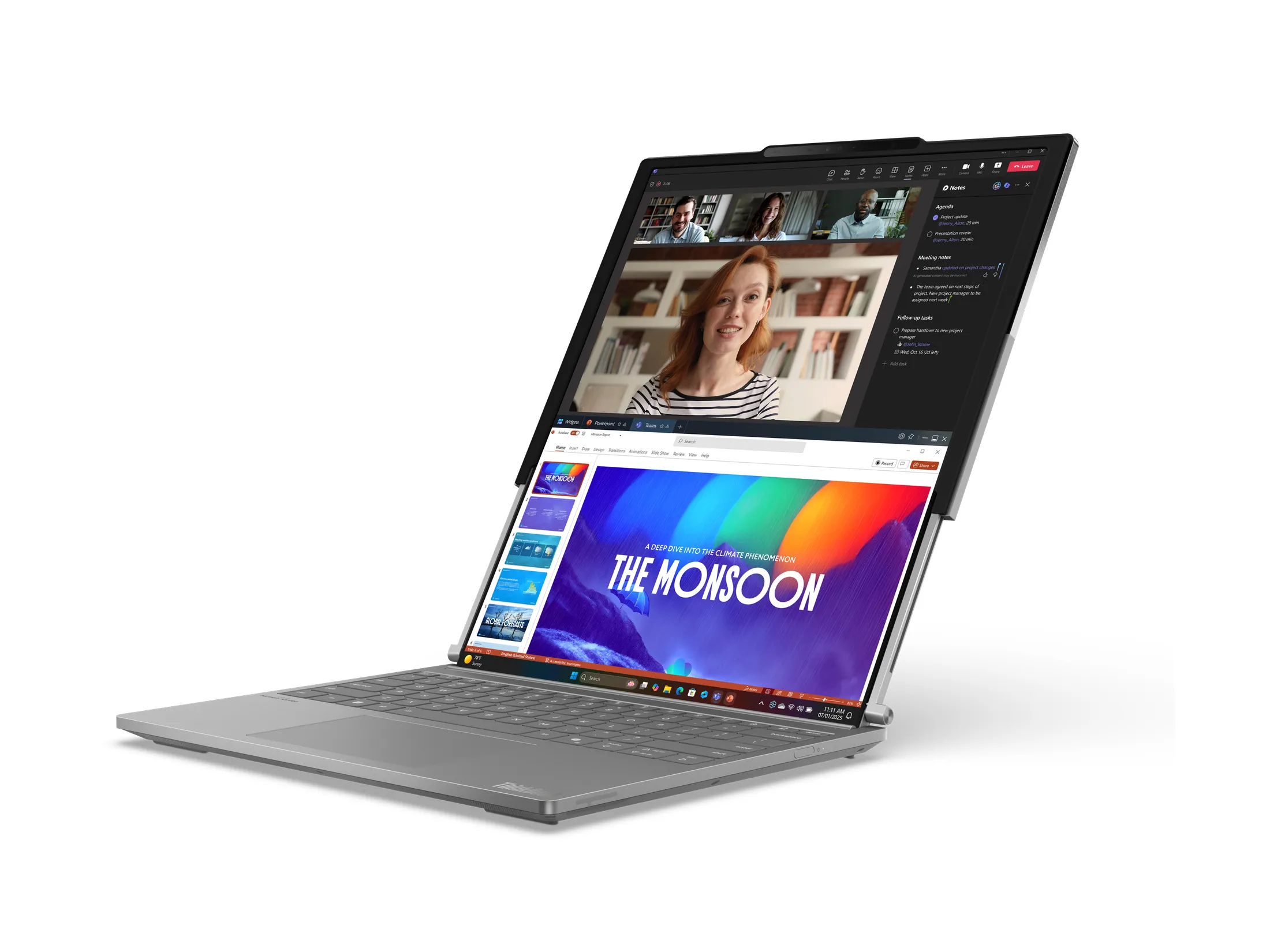By Evan Ackerman

PQI has officially announced the production of a high speed 256 gigabyte (!) solid state drive. Their Turbo+ SSD is able to transfer data at 60 mb/s, which, while still 5 times slower than SATA, is still respectable enough, especially with the much lower seek times and low power consumption that make them so obviously the future storage medium for portable computing. You can bet that 256 gigs isn’t gonna be cheap: there’s no price tag yet, but a PQI Turbo+ IDE SSD drive, at (only) 32 gigs, will set you back a cool 1.5k, so you can extrapolate the math on that one. But cheer up, although basic SSD style flash memory might be about $20/gig now, prices are forecast to drop by a factor of ten in just 3 or 4 years.
If you’re wondering how in the heck there’s even a market right now for relatively small SSD drives at such crazy prices, read on after the jump.
Far from having a casual, geeky interest in SSDs (although I have that too), there is an important practical side to hard drives without moving components… I, for example, happen to work for a company that takes digital images of vineyards from unpressurized light aircraft, and we’ve learned from experience that conventional hard drives don’t work very well (or, sometimes, at all) much above 10,000 feet. The reason why not is pretty interesting: it turns out that when a standard hard drive is operating, air pressure created by the moving magnetic platter pushes up “sliders” which keep the read/write heads at the proper height above the disk. At high altitudes, there’s not enough air pressure to keep the sliders up, and they’ll descend and cause the disk to temporarily fail… and there’s nothing like drive failure after you’ve spent four hours bouncing around in the back of a Cessna collecting imagery in between bouts of airsickness.
VIA [ Fareastgizmos ]










